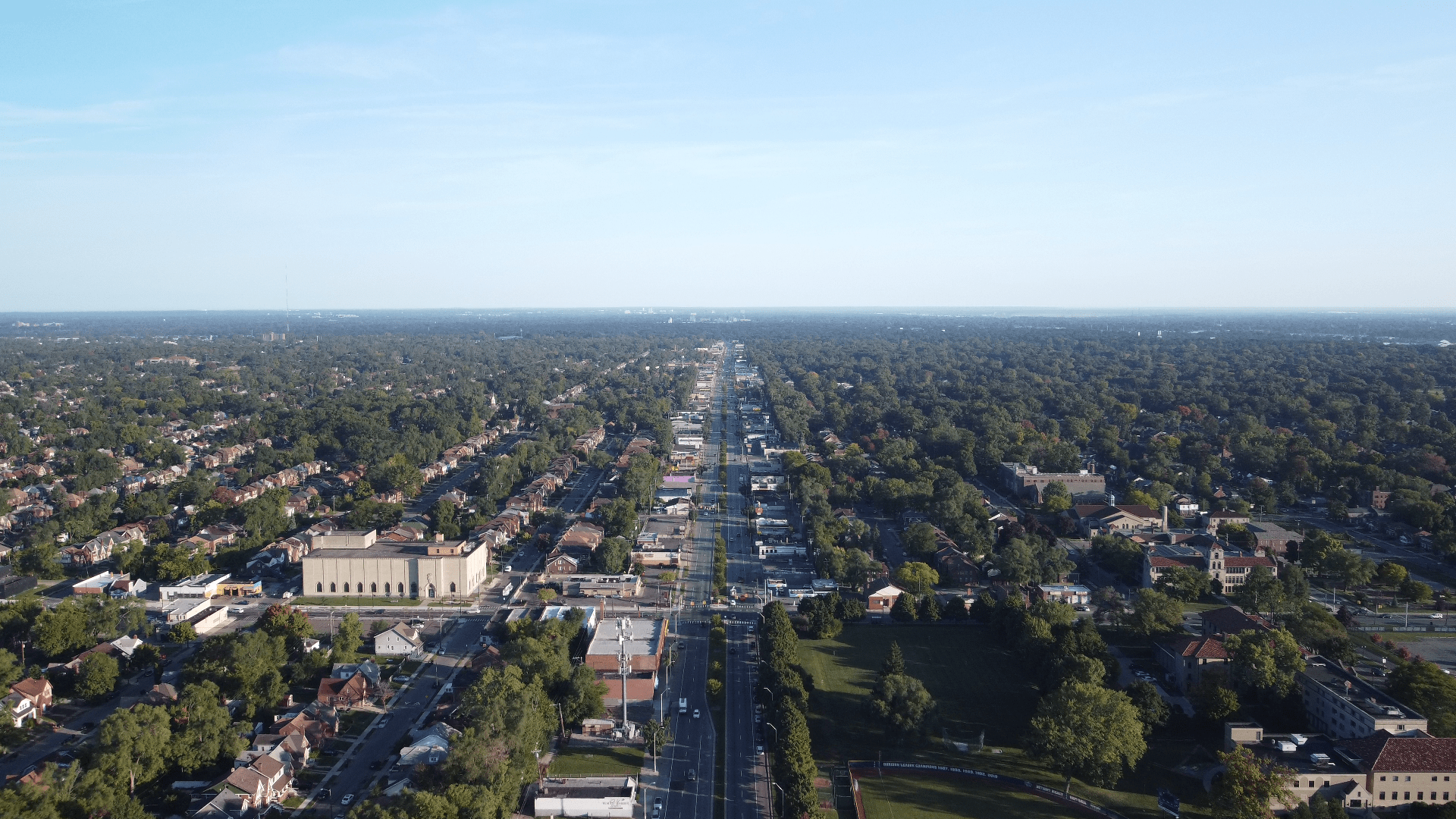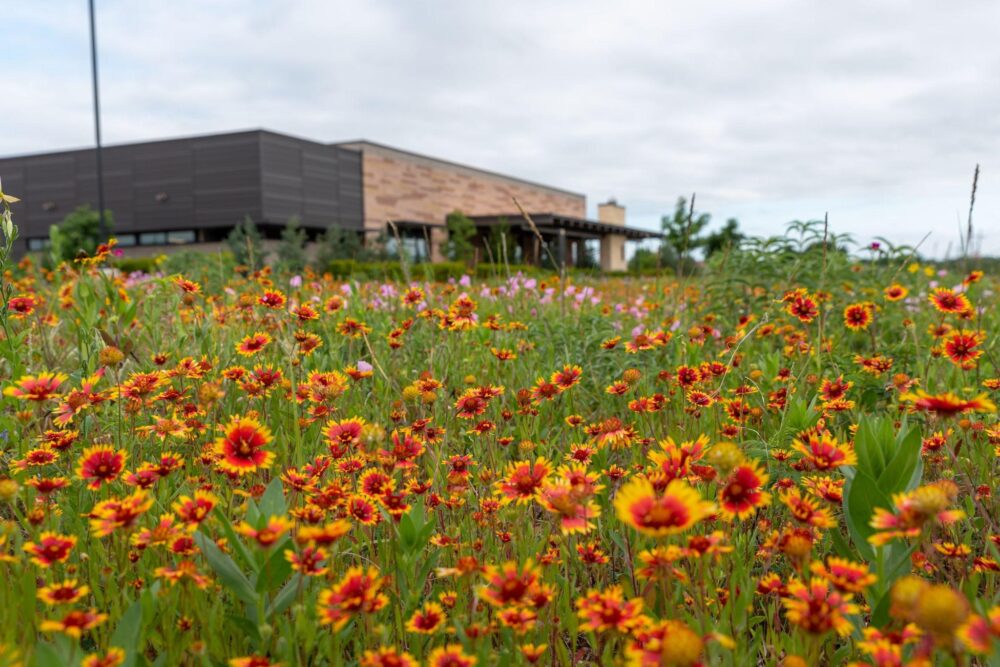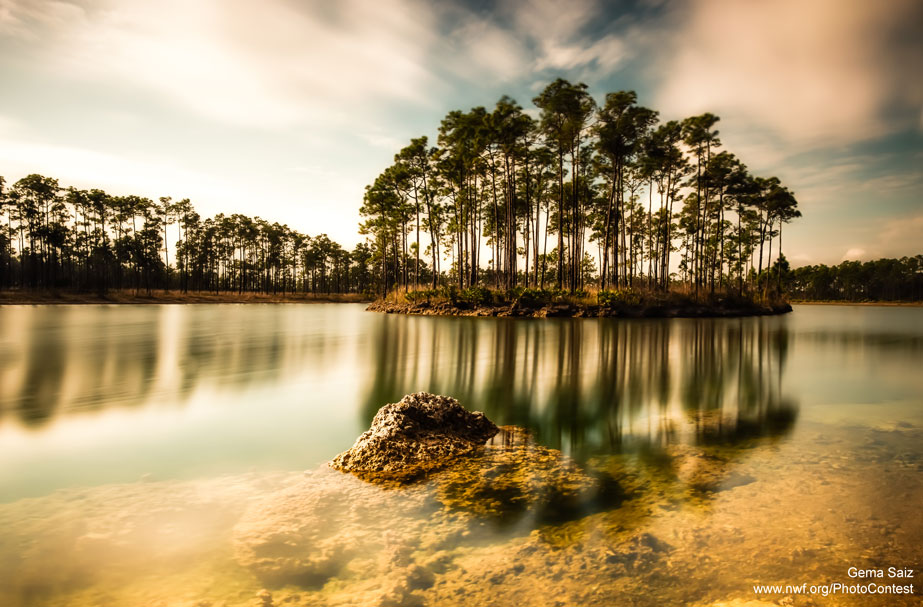We have much more to do and your continued support is needed now more than ever.
Building Detroit’s Green Future
Sacred Grounds and Community Engagement
For many of the houses of worship and organizations involved in Sacred Grounds, it’s as much about education as it is about the installations.
Read part 1 of this series here.
Back on the west side of Detroit, St. Suzanne Cody Rouge Community Resource Center has been working with Sacred Grounds since 2020. In the summer of 2021, it was able to implement a 700-square-foot rain garden — one of four total — on the west lawn of their church building. Three downspouts funnel water from what executive director Steve Wasko estimates to be about 60 percent of the west-facing side of a large roof to sustain the garden rather than sending massive amounts of runoff into Detroit’s stormwater systems.
St. Suzanne integrates green infrastructure into its school curriculum, as well as into youth and adult training programs.
“They learn everything from how water comes up and down on this earth and how it goes in a cycle…that when it rains tomorrow, that’s not new water — that’s simply water being recycled,” Wasko said. “They learn about the impact of how water moves in an urban environment with so many hard surfaces and with pollution and with runoff and with puddling, and they learn what you can do about it, and very specifically what you can do about it in the context of this five-acre campus.”
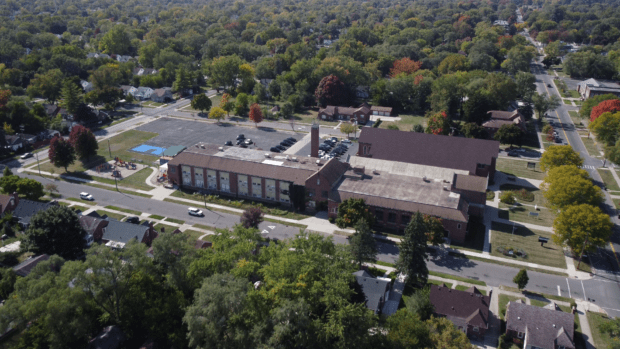
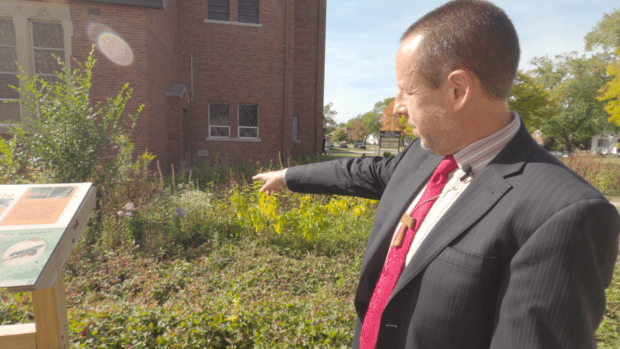
For Elayne Elliott, the chapter director at the Michigan Chapter of the Sierra Club, partnering with St. Suzanne for a summer youth program is a particularly meaningful memory because she’s seen how quickly children’s perspectives can be shifted in a matter of hours.
Students had been learning all summer about the concepts of green infrastructure. But at the end, they had the opportunity to get their hands dirty. The installation began how you might expect it to — grumbles about working outside and getting tired. But within a three-hour window and some discussion of the birds, bees and flowers that would appear in the years to come, the atmosphere changed.
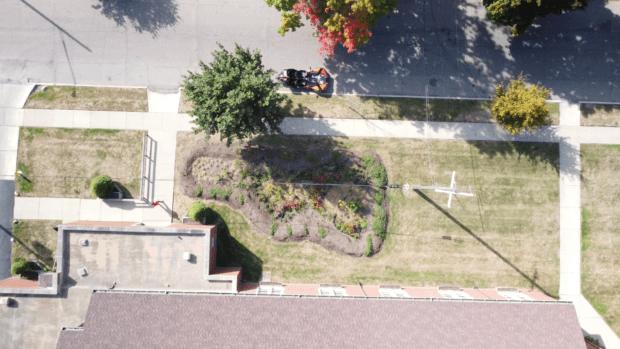


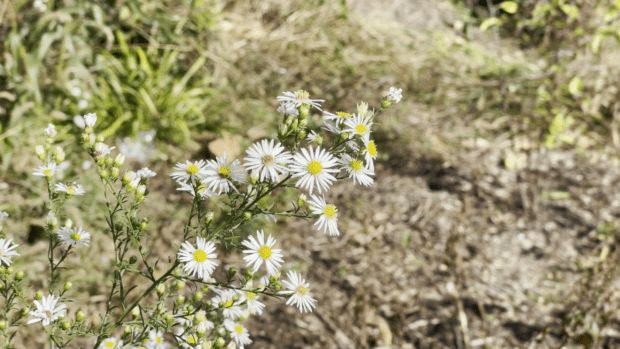
“Those young people really went from being on the fence and not that excited about being dirty…to being really impressed with the work that they did [and] the contribution that they have made to St. Suzanne,” she said. “They became really excited just in that short timeframe about the possibility of the kinds of things they will begin to see.”
Across all the Sacred Grounds projects underway in Detroit, a common theme is preserving, protecting and restoring the earth for the next generation. Elliott herself grew up in Detroit, and while she “did not like the outdoors as a child,” was inspired to do environmental work after struggling with asthma.
“When I realized that there was a connection between nature and the environment, and the way people experienced quality of life, that was kind of how I got into this work,” she said.
For both Tiffany Jones of NWF and Elayne Elliott, programs like Sacred Grounds are shaping Detroit’s future, one lot — one community — at a time.
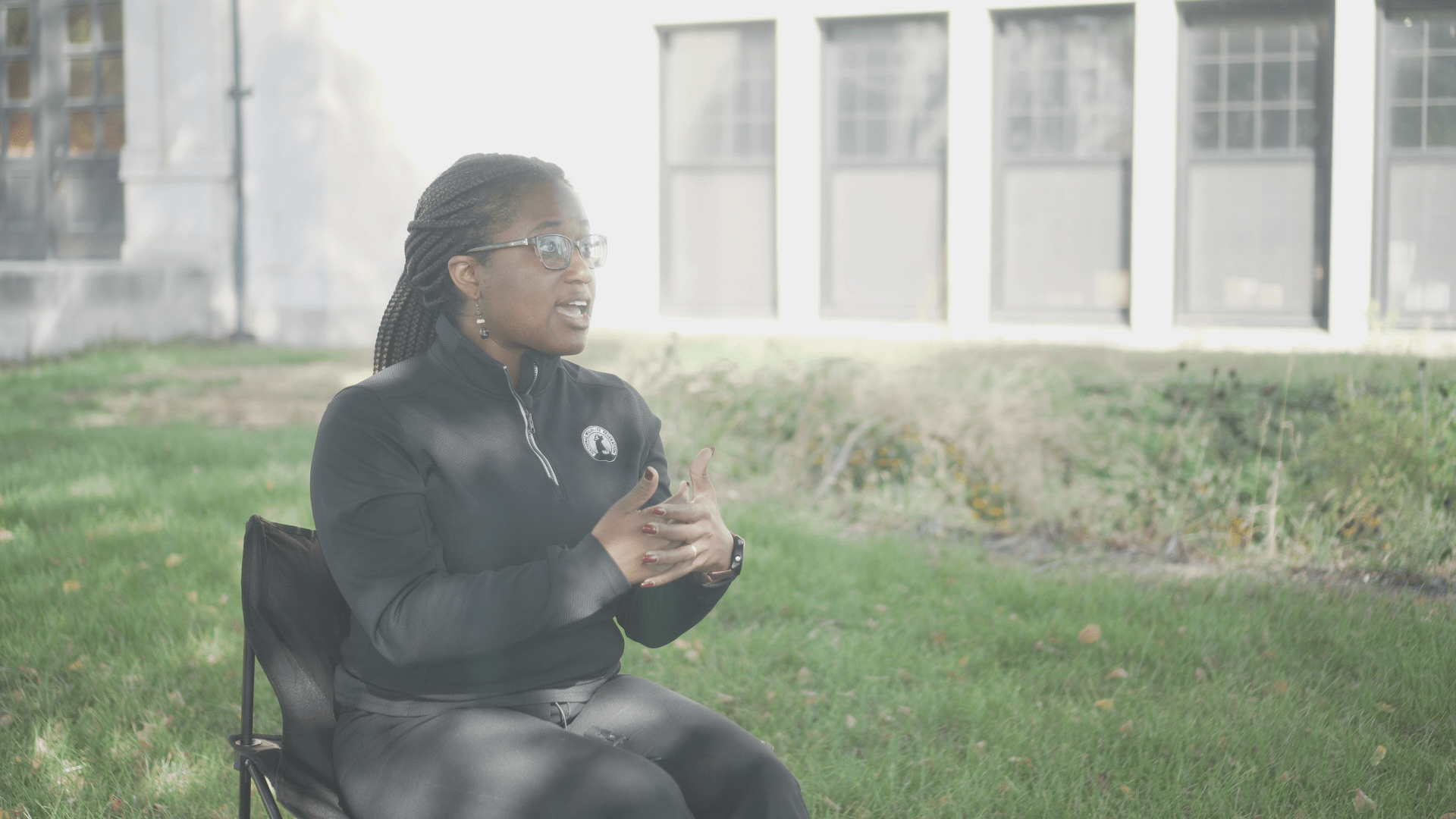
“When I think about the environmental future of Detroit and what I would like it to look like in the next 20 to 30 years, I’m excited to see more green infrastructure projects going in around the city, not only at houses of worship, but in our parks, along our streetscapes in our communities at more residential homes,” Elliott said. “I’m excited about the ability for young people to understand what it means to take care of the earth. I’m excited about what it means when we think about the future planners of the city and what they see as a priority.”
And while Detroit might not be first in mind when seeking model cities for a greener future in the face of dwindling natural resources and climate change, Sacred Grounds’ story is flipping the script. Raised in Detroit, Tiffany Jones’ father is a pastor and her mother is an educator — so Sacred Grounds is for her the perfect marriage of faith and stewardship for a city that has the potential to lead the way for generations to come.
“I believe that Sacred Grounds and [these] houses of worship are doing the work for the small, doable, action-based changes that allow for their communities to be transformed, but also to give inspiration, not only in Michigan and Detroit, but across the country and across the world, that every action counts,” Jones said.
